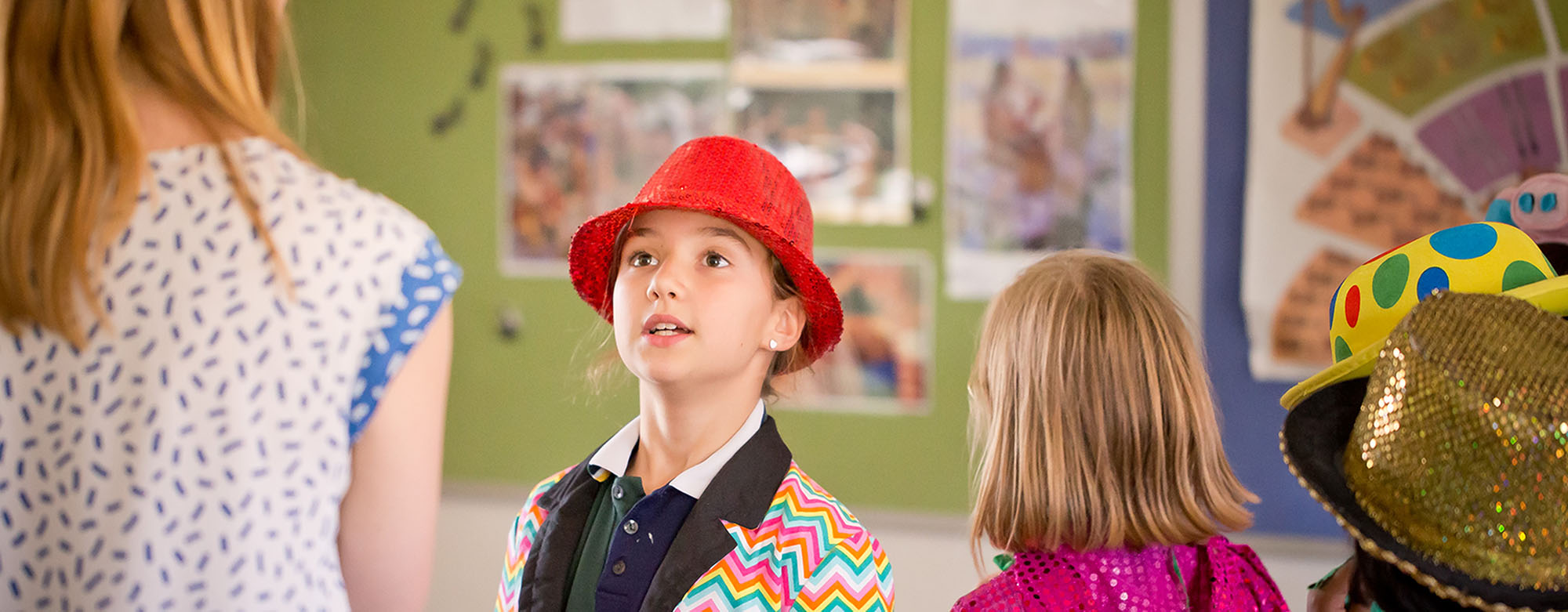
24 Apr Building trust in the classroom
Trust is one of the most important building blocks in a drama classroom, or any classroom for that matter.
Trust works in mysterious ways, but we very much love the way Brene Brown describes it in her book Dare To Lead.
Brene uses the analogy of a marble jar to explain how trust develops over time.
“We trust people who have earned marbles over time in our life. Whenever someone supports you, or is kind to you, or sticks up for you, or honours what you share with them as private, you put marbles in the jar. When people are mean, or disrespectful, or share your secrets, marbles come out. We look for the people who, over time, put marbles in, and in, and in, until you look up one day and they’re holding a full jar.”
Brene goes on to describe that marble jar moments are not usually big, dramatic or heroic. The are small and consistent.
So, how do we, as teachers “fill up” our students marble jars to build trust in the classroom? There are three main ways in which we can do this.
Keep our promises
One of the most important ways to build trust, is to keep our promises. If we say to a student we will bring something in for them, we must remember to bring it. If we say we will do something for them, we’ll do it. I will never forget the time I promised a class I would bring lion costumes for our last lesson of the term, only to forget them. The kids were so excited about it, and I really let them down. I didn’t earn any marbles that day. Kids have incredible memories and saying one thing and doing another (no matter how small) is a breach of their trust. Since that day, I put a notebook in my teaching bag titled “promises I have made to kids” and I check it every week.
Remember little details
Remembering all the little things about our kids is important to us – the names of pets, grandparents, brothers and sisters, for example. We’ll try to remember challenging times, remember likes and dislikes, and relate them back to students. I have a student who once told me she was scared of the kind of mascot costumes with giant heads that obscure the person’s face. Years later at her school fete, one of these characters turned up. I checked in with her to see how she was doing and she couldn’t believe I had remembered.
We trust our students
Teacher expectations can have a huge impact on student outcomes. The Pygmalion Effect, based on the work of Rosenthal and Jacobsen, tells us, “When we expect certain behaviours of others, we are likely to act in ways that make the expected behaviour more likely to occur.”
The original research focused on an experiment at an elementary school where students took intelligence pre-tests. Rosenthal and Jacobsen then informed the teachers of the names of twenty percent of the students in the school who were showing “unusual potential for intellectual growth” and would bloom academically within the year. Unknown to the teachers, these students were selected randomly with no relation to the initial test. When Rosenthal and Jacobson tested the students eight months later, they discovered that the randomly selected students who teachers thought would bloom scored significantly higher. (Read more.)
The same can be applied to trust. If we believe that our students will let us down with their behaviour, their attitude or their efforts, they are likely to do that. If we trust our students to rise to the occasion, to do the right thing, and to exceed our expectations, they will.
This doesn’t mean that students will always do the right thing. But starting from a place of trust is much better than the alternative.
Find out more about our confidence building classes.

